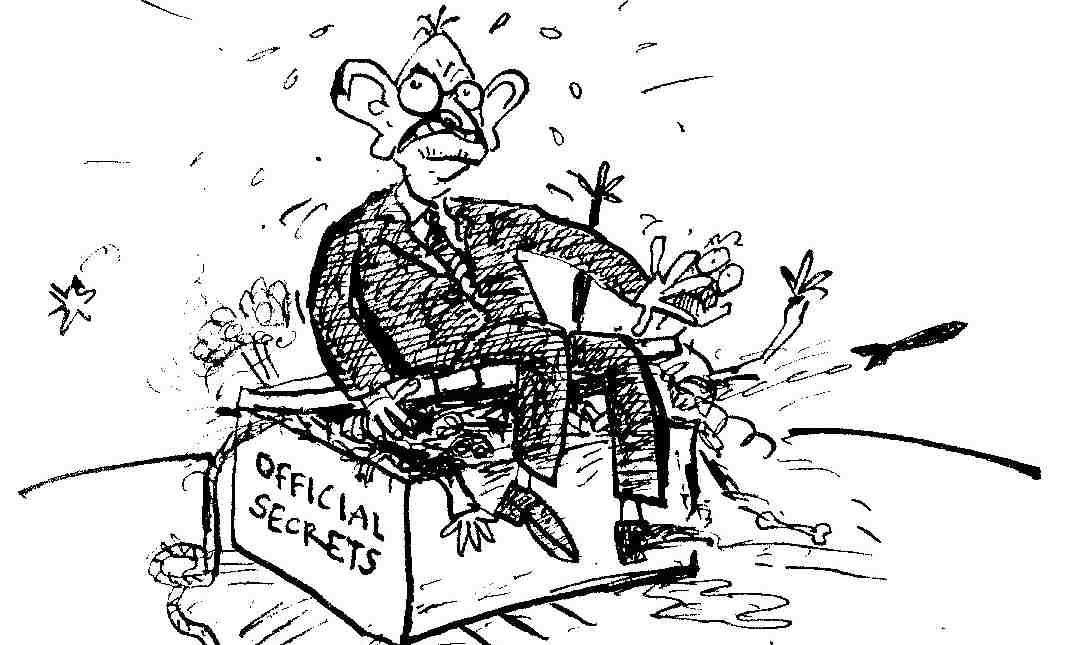
30.07.06 Look
out for updates on this subject
Ministers are considering an increase in charges for requests under the freedom
of information act (FOIA). A leaked confidential cabinet paper pro-poses that
fees should be set to deter “the most difficult requests”.
The paper by Lord Falconer, constitutional affairs secretary, presents
options on how fees could be changed.
In particular, he wants new rules to make it easier for the government
to refuse requests on the grounds that they are too costly.
He is also considering a flat-rate fee for requests, which he says
will have a “deterrent effect” and “inhibit serial requesters”.
He estimates that this change, similar to a measure introduced in Ireland,
would cut FOIA requests by around a third.
“It is likely individual flat fees will cost more to collect
than they bring in, but their deterrent effect will inhibit many serial requesters
from making numerous requests with no regard to the cost to public funds.”
This, in turn, would lead to an overall saving, he says.
Falconer admits in the paper, of July 17, that the government would
be attacked for any such changes.
To counter criticisms, he plans to commission a cost-benefit analysis
of their impact. This would give a “solid evidence base” to make
changes after the summer recess.
Sources at the department for constitutional affairs (DCA) suggest
that the idea of a flat fee has been rejected, but the proposal of increasing
charges for “vexatious” requests is favoured.
Falconer says in his memo, as previously reported by the FOIA Centre,
that public bodies should also be allowed to include towards the cost of responding
to a FOIA request the time officials spend reading documents, as well as consulting
on, and considering, their release. This would make it easier to reject requests
on expense grounds.
He also suggests allowing public bodies to “aggregate”
requests when calculating costs.
Under current rules, a central government department can refuse a request
if the cost to the authority for complying exceeds £600, including staff
hours spent locating and retrieving the relevant information, but not the
time they spend reviewing it.
He says that these measures alone would allow “the most difficult
requests (generally received from determined and experienced requesters) to
be refused on cost grounds.”
The DCA estimates that this would deter just under a fifth of people
whose requests require a substantial response.
The memo suggests that Falconer has broken his department’s promise
to the parliamentary constit-utional affairs committee, made in evidence in
March, when it said that there was no plan to increase FOIA charges in order
to curb freedom of information.
It said then: “Contrary to media reports, the government has
no ‘secret plan’ to introduce deterrent fees. The purpose of any
potential review will be to ensure that FOIA is working well and that the
fees regime continues to balance public-access rights with the needs of public
authorities to deliver services effectively.”
MPs on the constitutional affairs committee pub-lished a report only
last month saying that they could “see no need to change the fees regulations.”
It continued: “We recommend that problems with ‘frivolous’
requests should be dealt with through the existing provisions in the act.”
It also recommended that the DCA conduct a public consultation before deciding
on any change.
But Falconer says in his paper: “We will be able to argue that
our commitment to freedom of information remains unchanged… but public
access rights must be balanced against other demands on public resources.”
FOIA Centre commentary
Lord Falconer, who heads the government department responsible for FOIA
in the UK, is finding the concept of open government difficult.
He is finding accountability difficult.
He is finding the truth difficult.
No one can be surprised. Politicians in govern-ments
often find these concepts difficult, even when they claim not to have such
problems with them while in opposition.
Falconer publicly claimed earlier this year that requestors were frequently
making frivolous FOIA requests. But his department could point to hardly any
examples. And the apparent aim of targeting “frivolous” requests
is being subtly re-directed to “difficult” requests. No doubt,
the government prefers frivolous to difficult.
Politicians find smoke-screens comforting.
As we reported at the time, his department told MPs just four months
ago that the government had no intention of increasing charges for FOIA requests
in order to curb freedom of information.
We also noted that its submission left open the option of increasing
charges in order to meet any aim other than deterring requests.
Politicians find weasel words comforting.
Now we discover that Falconer is making propos-als that would, indeed,
curb freedom of information. Perhaps that bright idea only occurred to Falconer
some time after his department submitted its evidence to Parliament in March.
We do not know, and we do not think that freedom of information can
help us discover, whether Falconer blushed as he went on to write: “We
will be able to argue that our commitment to freedom of information remains
unchanged.”
Politicians do not blush easily.
Comment
on this article
MPs:
FOIA regulator must become more ‘assertive’
Ministers
deny plans to increase FOIA charges
Headlines

 |
 |
||||||||
 |
 |
||||||||
 |
 |
 |
|||||||
 |
|||||||||
 |
|||||||||